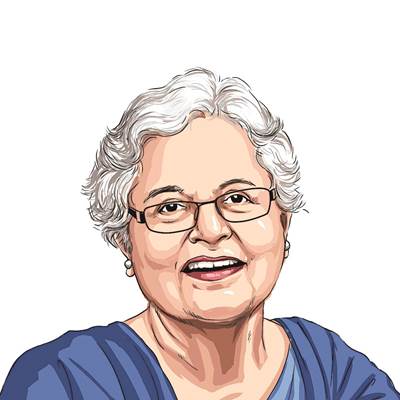Opinion Time to put the House in order
Prime Minister Manmohan Singh has been absent for nearly half the month-long winter session of Parliament.
Prime Minister Manmohan Singh has been absent for nearly half the month-long winter session of Parliament. Clearly Parliament is no longer considered sacrosanct. The PM was on a 10-day trip to Washington and Port of Spain when the price rise debate came up. He was in Russia when the Lok Sabha debated the contentious Liberhan Commission report. And on Thursday,he left for Copenhagen to attend the Climate Change conference.
Perhaps the invitation to be US President Obama’s state guest was an honour that the Prime Minister could not have easily declined. One could also make out a case that the Climate Change conference is an international meet of far-reaching import,where Singh’s presence is essential.
But was it really necessary for the PM to attend a routine CHOGM meet where nothing very substantial emerged? And since Russia hopes to be a major beneficiary of the joint nuclear deal by selling nuclear plants to India,the Russians would have been happy to readjust the dates on signing the deal to suit India’s convenience.
If it had been anyone other than the earnest and self effacing Dr Singh,he would have been accused of cocking a snook at Parliament. In earlier times when prime ministers skipped Parliament for just a day or two,there were howls of protests from the Opposition.
If there is less outrage today it is because Parliament has lost some of its aura. A large number of MPs,in fact,followed the PM’s example. During the current session,attendance in the House is on an average only around 40 to 50 per cent during peak times,such as Question Hour and Zero Hour. Last Thursday evening,there were barely two dozen MPs attending the supplementary demand for budget grants.
Abysmally low attendance is the norm in the afternoon sessions which is why there is an unwritten convention that no MP demands a quorum,even though the numbers are well below the mandatory 10 per cent. The Friday afternoon session devoted to Private Members Bills has lost all relevance,MPs have usually left for their constituencies by then.
The high absenteeism in the Lok Sabha was very visible a fortnight back,when Question Hour had to be adjourned by Speaker Meera Kumar because 17 MPs,who had starred questions listed against their names,did not show up. In fact,one or two of the missing MPs were actually present in the Parliament premises that day. In the Rajya Sabha last week the first six questions could not be taken up for discussion because the MPs concerned played hooky.
There appears to be a growing chasm between the way we conduct parliamentary proceedings and the Westminster pattern,which was our model. During the Liberhan debate few could hear Home Minister P Chidambaram’s response in the Lok Sabha as his voice was drowned by heckling BJP MPs. Rather than restore order and waste time in strictures and adjournments,it was easier to carry on the business of the day regardless of the din. When the House is noisy it is routine for ministers to simply place important documents on the table of the House which are “taken as read”. Last December,the government hustled eight important Bills through in 17 minutes with no discussion whatsoever,negating the very spirit of a parliamentary democracy. Parliament,after all,is not just about form but also substance. It is not merely going through the motions,but the quality of discourse.
One reason why debates in the House are not taken as seriously as in the past is because under the defection law positions on any issue are clear cut and known in advance. MPs do not have the luxury of coming to their own conclusions,because party whips are issued on most topics. Which is why the ruling party is more concerned with working out an agreement with political party leaders behind closed doors before the deliberations,than making genuine efforts to convince MPs on the floor of the House.
Disgruntled former MP Shahid Siddiqui says that party leaders,who are often not even MPs themselves,instruct the parliamentarians what to say. “Parliament is the chessboard on which the pawns are moved,but the hands moving them are elsewhere.”
Vice-President and Chairperson of the Rajya Sabha Hamid Ansari made a very valid point recently when he talked about the need for expanding political and policy expression in Parliament. He suggested that whips should be limited to Bills that threaten the government’s survival such as money Bills or a confidence vote.
Congress spokesperson Manish Tewari in The Indian Express last week backed the Vice-President’s suggestion on revisiting the Tenth Schedule of the Constitution to seek more internal democracy in our legislatures. Perhaps it is time for political parties to sit together and think of ways to make Parliament more meaningful and relevant in an Indian context.





